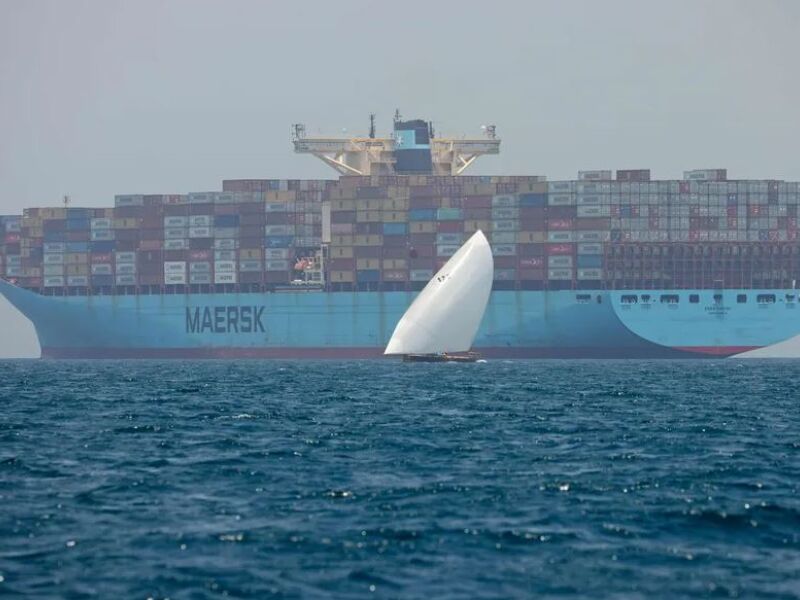A major commercial route is under threat as Houthi militia from Yemen has been attacking civilian vessels recently in the Red Sea. Not only are these attacks causing economic strain, but they also contributed to the creation of a U.S.-led naval force.
Tasnim news agency reported that on Monday, the destroyer Alborz crossed the Bab el-Mandeb Strait as part of the Iranian Navy’s regular missions in international waters. However, this journey raised eyebrows due to the ongoing attacks by the Houthi militia, which have affected commercial vessels associated with Israel.
These attacks by the Houthi militia have led to the suspension of traffic in the area where 12% of international trade passes through, raising concerns about the potential impact on prices of goods and commodities, particularly oil. As a result, the U.S. and nine other countries established a naval force to prevent further Houthi attacks.
Last Sunday, the coalition was deployed after a warning from the ship Maersk Hangzhou, which had been struck by missiles the day before and was approached by four boats suspected to be Houthi-affiliated. This led to a confrontation where three of the four boats were sunk, and 10 militia members died. No crew members of the cargo ship were injured.
Although the Alborz, built in 1969, is not a match for American warships in the Red Sea, Iran has not shown direct interest in engaging in the conflict in Gaza or confronting the United States. Instead, Tehran may encourage its regional allies, such as the Houthis, to step up their actions, positioning the warship as indirect support for the attacks against vessels in the Red Sea. This strategy has garnered increasing support among Arab populations due to the stance on the Gaza conflict.
The refusal of Saudi Arabia and the United Arab Emirates, who launched an armed offensive against the militia in 2015, to join the U.S. naval force may further embolden the Houthis to continue and intensify their attacks. Analysts believe that the militia may expand its targets to include ships from countries they deem “hostile”, further heightening tensions in the region.
The international community, particularly the U.S. and the U.K., have been engaging in discussions about the situation in the Red Sea, stressing the need for multilateral actions to contain the threats from the Houthis. Despite these diplomatic efforts, the risk of escalation remains a significant concern, with experts predicting the likelihood of further attacks on commercial assets and U.S. ships in the future.
In addition, Iran’s indirect support for the Houthi attacks, combined with the reluctance of some regional powers to join the naval effort, suggests that the current tensions and potential risks in the Red Sea could persist. As the situation develops, it remains crucial for global leaders to prioritize dialogue and cooperative measures to address these challenges effectively.











